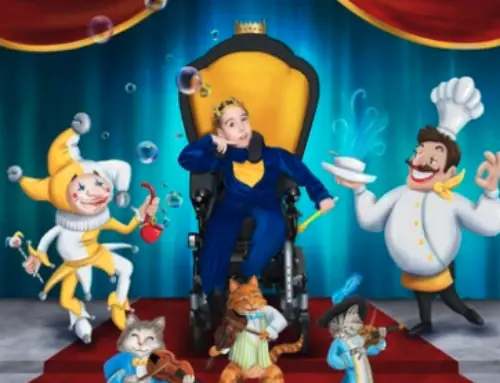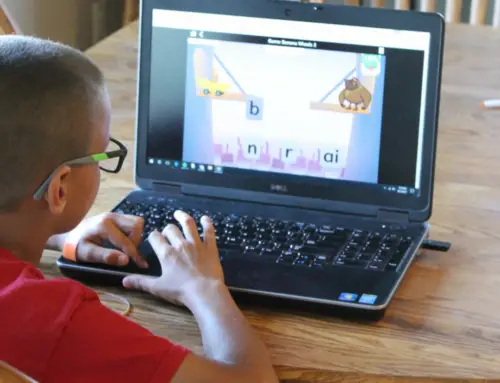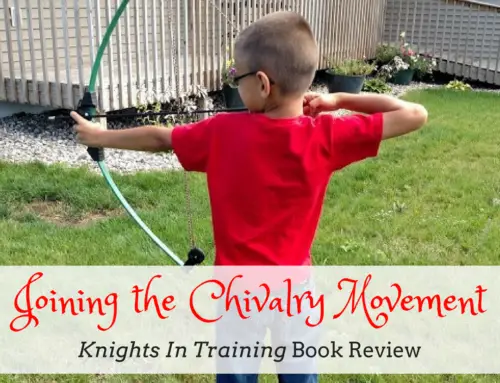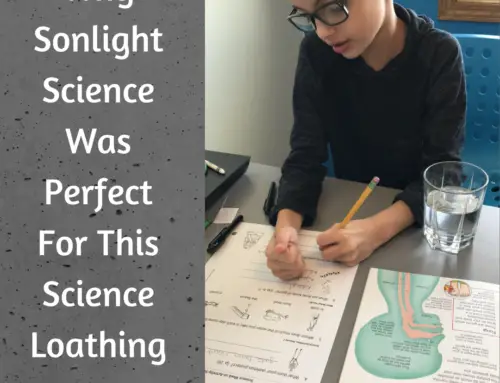If you’ve been following me on social media, you know that I have been working on writing my first book! The book is titled Beyond the Diagnosis – How to Thrive as a Special Needs Parent. I am so excited to be releasing it really soon and wanted to take this opportunity to share with you a little more about the book.
Story Behind Beyond the Diagnosis
When I began this blog, my two goals were to be a voice of encouragement to other special needs parents, helping them to know they were not alone. The other was to bring awareness of the realities special needs families face on a day to day basis. When I began writing Beyond the Diagnosis almost a year ago, I was recovering from a collapse in my mental health. I had suffered from chronic depression and anxiety for almost two years. As I continued through my healing process, I felt the importance of my original goals for this blog stronger than ever. I had a new found sense of purpose and felt God leading me toward writing this book for other special needs parents who are struggling emotionally, or those who recently received their child’s diagnosis.
I knew that like myself, most parents of children with special needs find few people who they can relate to and who understand the journey we are on. It’s difficult to know what to expect as we travel the path of special needs parenting and few who can help us navigate the journey. With the desire to be a source of comfort and understanding I decided to share our story to help others know they are not alone, give them an idea of what to expect, and hopefully learn from my mistakes.
The following is the introduction taken directly from Beyond the Diagnosis
Introduction to Beyond the Diagnosis
I could never do what you do.” If there were one statement I wish people would stop saying to me as a special needs parent, that would be it. I cringe every time I hear it. This comment puts us on a pedestal that we don’t belong on. It’s not as if we have supernatural powers that make us uniquely qualified to raise children with special needs. That statement also implies we had a choice in the matter. For some of us, that may be the case, knowingly adopting a child with special needs. But being a parent to children with special needs was not a life I chose. It was completely unexpected. If you’re reading this book, chances are it’s not the life you expected either. Of course, no one’s life really turns out as they thought it would. But your child being diagnosed with a disability will take you down a path traveling in a different direction than you had planned. This path leads through emotional struggles and to a new family dynamic that few can understand.
Your child being diagnosed with a disability will take you down a path traveling in a different direction than you had planned. #beyondthediagnosis #specialneedsparenting Click To TweetI am not a doctor, nurse, therapist, or special education teacher. I have not had any formal training when it comes to children with special needs. I’m just a mom. A mom that God has called to raise two incredible children who both happen to have special needs.
Our firstborn, Gavin, has been diagnosed with autism, ADHD, anxiety, and dyslexia. Our daughter Mikayla has both cerebral palsy and autism. We are, therefore, parents to children with both seen and unseen disabilities—and although there is a common belief that raising a child with a physical disability is more demanding, this simply isn’t true. They both present unique challenges. I don’t know how many times mothers of children with unseen disabilities, such as ADHD or autism, have implied that Mikayla’s physical disability makes my journey as a special needs parent more difficult than theirs. I’ve been hearing comments like this for years, some before Gavin had ever been diagnosed with his special needs, and sometimes I hear it from people who are unaware that Gavin has unseen disabilities himself. Each time, my heart breaks for these parents. I know they feel like their struggles are not as valid, that they are not justified in identifying as special needs parents. As a mother of children with both seen and unseen disabilities, I can honestly tell you that one is not any more difficult than the other. Each will take you down a path that can be tough to navigate at times. No matter the type of disability your child has, the experiences and struggles you are facing are just as real and valid. Trust me when I say, from my unique position of having children in both categories, that there isn’t a hierarchy of special needs for ranking our children and experiences. The specific challenges we face might be different, but all special needs parents are on the same level, and we need to be perceived—and to think of ourselves—as such.
Every special needs diagnosis is different, and every child with those diagnoses is different. I am also not an expert in any one diagnosis, nor do I pretend to be. What I do know is what it feels like to be a mother to children with special needs. I have experienced the emotional highs of the joy that comes when your child achieves something they’ve worked so hard on, along with the emotional lows of chronic depression, which I struggled with six or seven years into my new life as a special needs parent. The path to thriving as special needs parents does not need to be diagnosis specific. While God is writing a different story for each of us, we are on the same journey of raising children with special needs. I believe there are many things we all have in common, no matter our child’s diagnosis. Our emotional path, from first learning of our child’s diagnosis to embracing our life as special needs parents, will have many similarities. From needing to grieve our child’s diagnosis and the life we expected, questioning God’s purpose in the path He’s led us to, and learning to be the parent our child needs us to be—these are the common themes we will struggle with.
One of the most common struggles that special needs parents face is finding a community who understands us. We are constantly battling the feeling that we’re alone in this journey and that no one understands. I was struggling with these things simultaneously with my depression. All I wanted was to know that there was someone who understood what I was going through. Looking back, I wish we’d had someone early in our lives as special needs parents to help guide us through the emotional battles we would be up against.
I firmly believe God directs our paths in a way to accomplish His purpose in our lives. After spending a considerable amount of time battling and overcoming my depression, I felt God calling me to write this book. I felt that He was leading me to take my experiences and be a voice of support for other special needs parents fighting similar battles. My hope is that as you read this book, you will feel less alone. In sharing our story, I’m hoping you will have a family you can relate to. I also hope you will become aware of the challenges you will potentially face and be able to rise above them and thrive as special needs parents.
If your experience has been like mine, you’ve likely had no problem finding resources for your child’s specific diagnosis and information about their special needs. It can be more difficult, however, to find resources discussing how being a special needs parent will affect you on a personal level. My goal in writing this book is to help fill that gap and to inform you of what I wish I’d known when our children were diagnosed—things like why it’s important to grieve the diagnosis, the risk of isolation, the need for respite and self-care, and the importance of celebrating the smallest victories.
The book’s three parts address the three stages of special needs parenting. Part one focuses on when your child is diagnosed and working through all the feelings and emotions that come with the diagnosis. The second part aims to help you adjust to your unexpected reality as a special needs parent. This part also addresses struggles you may face along your journey. Here you will learn that you’re not alone and will discover solutions for a positive adjustment to your new reality. Finally, the third part of this book focuses on how to use everything you learned in the first two parts to thrive as a special needs parent.
I hope you will find comfort in being able to relate to our family when it feels like no one else understands you. I hope you will learn from my mistakes, recognize potential emotional traps, and be able to dodge them. It is my hope that you will feel validated in the feelings you may be struggling with and encouraged to embrace your life, children, and their special needs. Finally, I hope you feel confident that God is there with you, helping you walk down this path.
The action steps at the end of each chapter are meant to help you reflect on the information and apply it to your own life—to guide you beyond the diagnosis to the point of thriving. I encourage you not to skim past the action steps but to take the time to thoughtfully put them into practice. Some of these action steps will help you to reflect on what you’ve just read and to record your feelings through journal prompts. Others will guide you in putting into practice the habits that allow you thrive, such as creating a plan to make self-care a part of your routine. So grab a notebook and prepare to begin walking down the path to thriving as a special needs parent.
Beyond the Diagnosis is now available!








Leave A Comment